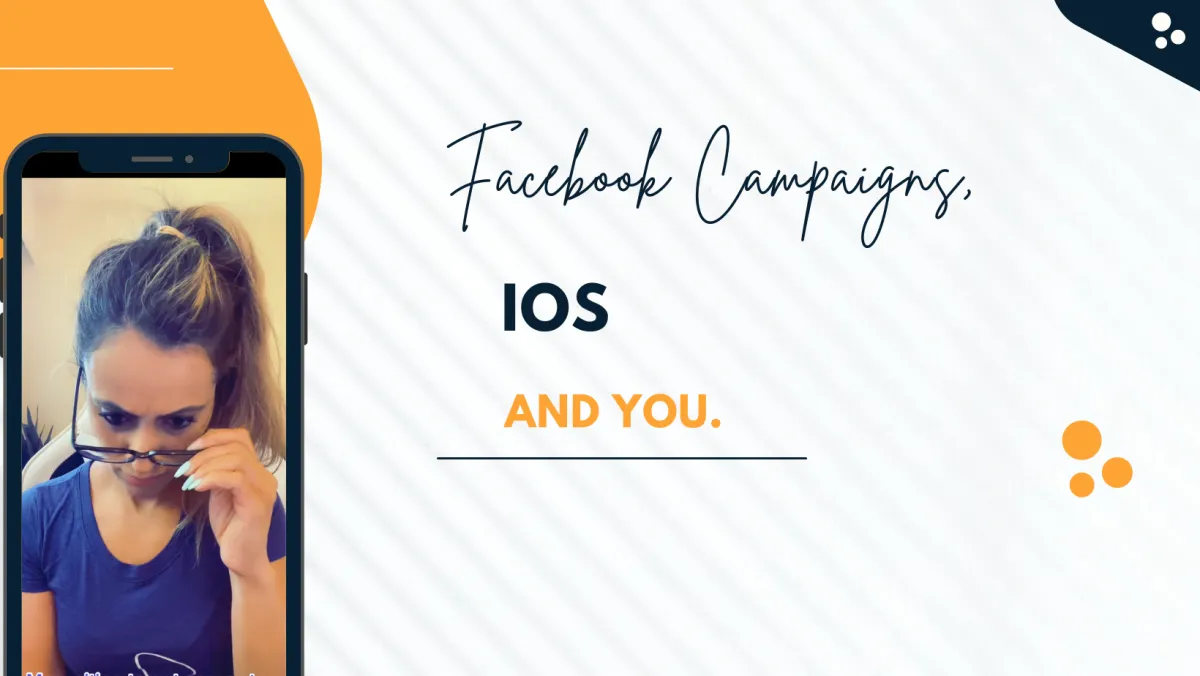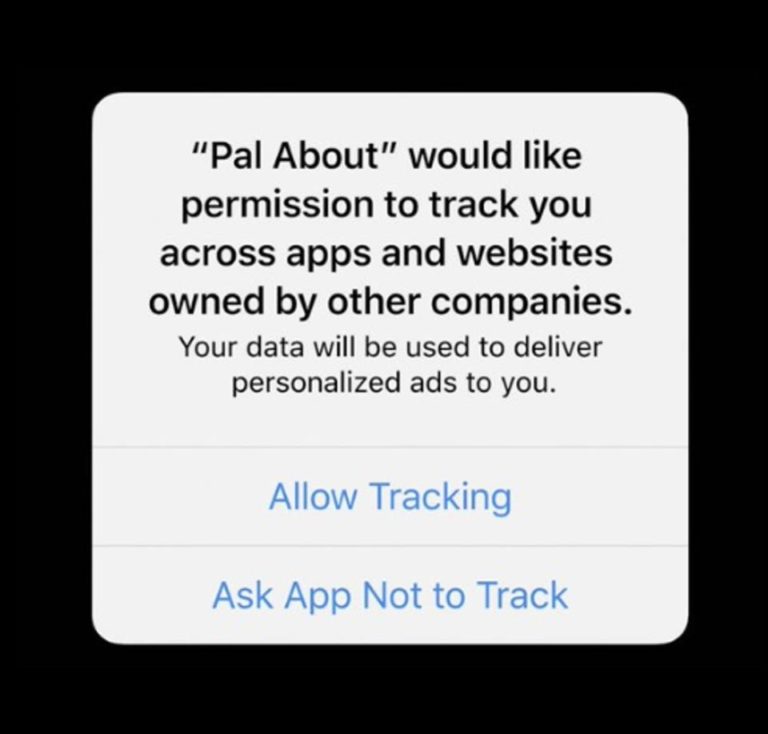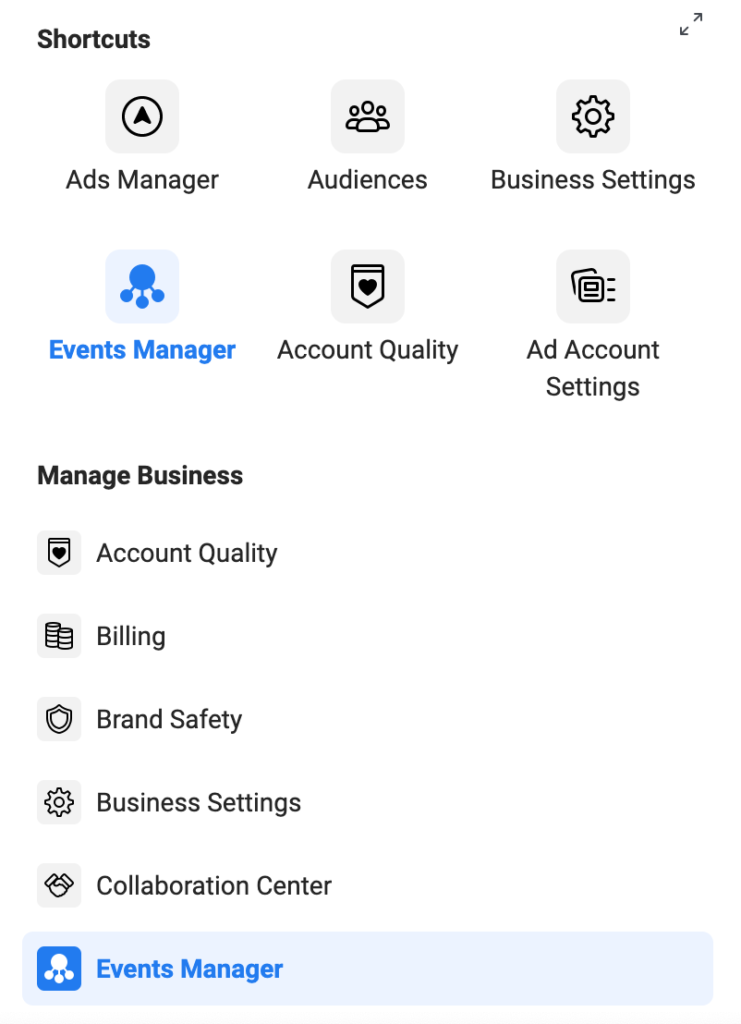Blogs
Lorem ipsum dolor sit amet, consectetur adipiscing elit, sed do eiusmod tempor incididunt ut labore et dolore magna aliqua.

08. Facebook Campaigns, iOS 14, and YOU
“Data really powers everything that we do.” - Jeff Weiner, CEO, LinkedIn.

You’ve probably heard the buzz about the new iOS 14 changes by now, and maybe even seen the warnings in your ad accounts. You might be feeling a little worried about what it all means for you and your marketing campaigns, and whether you should even be considering advertising on Facebook at all right now.
As marketers, either for our clients or for our own businesses, we have to realize that we’re in a fast-paced, constantly evolving market. And the only way to keep up is to be willing to evolve with it.
The good news is that it isn’t all bad- if you know what to do about it. Here is what you need to be aware of- and what we’re doing to mitigate the effects of these changes with our own client campaigns:

Any app that wants to track user data will now start to show a popup the first time the user opens the app, asking them to explicitly opt in to tracking (including the Facebook app itself). The first thing to do is assume that a significant proportion of the iOS user population will opt out, and that we will no longer be able to track these users off the Facebook platform with as much data as we have previously been able to.

For conversion events, Facebook will now use an aggregated event measurement to track conversions. This means that it will still track one event per domain that has the highest priority in your Events Manager settings, but will no longer be able to track other events with a lower priority. So if you’re prioritizing the purchase event, for example, Facebook will still report the number of purchases you get from users who click through your ad, go through your funnel, and trigger your Purchase event pixel when they land on your post-purchase page within a 7-day window. But if you have a ViewContent or Lead pixel on any pages in between, Facebook will no longer be able to track those moving forward. Why do we care? Read on…
Many of us use those ‘lower priority’ event codes on our funnel pages in order to run retargeting (or cart abandonment) campaigns. Unfortunately, this is now no longer going to work correctly for iOS14 users who opt out of being tracked on web pages, and using this method will now give us shrunken audiences. So we need to look to other ways to retarget our audiences, such as video views or post engagement. Want a better solution? Keep your audience on the Facebook platform itself by replacing funnels (where it makes sense to) with lead forms and- better yet- Messenger funnels.
Facebook’s attribution window will now be 7 days versus the 28 days that we’ve been spoiled with. This means that when a user clicks on our ad and lands on our funnel, but doesn’t necessarily complete all the steps in the funnel right away and instead saves the link to come back to in the future, Facebook will still be able to attribute the conversion (lead, purchase etc) to the ad that the user came from, but only as long as they return and complete their purchase (or other conversion event) within 7 days.
Also keep in mind that we are now only allowed up to 8 event codes per domain. To be safe, try sticking with standard event codes vs custom event codes, and also try not to use more than 8 event codes across all your domains in total to keep things simple. Most of us use 5 or less, so this shouldn’t be overly tricky.

You will now be required to configure your events within the Events Manager tab in your Business Manager. You can do this by following the simple, step by step instructions from Facebook listed here.
Facebook metrics will now lag 2-3 days for conversion data from iOS14 users. So the data that you see in your ads manager will likely not be completely accurate or up-to-date. This means that we will need to test our campaigns for a minimum of 3 days before we know what’s working and what isn’t, versus the 24 hour window that we were able to rely on in the past. Although this might not make a huge difference in terms of time, we will need to account for it when assessing our marketing budgets- and our testing budgets in particular.

Another way to mitigate the effects of these changes is to not rely solely on the data that Facebook displays in your ads manager. Instead, look at multiple sources to get that data if you’re able to- your CRM, your funnel software, and of course your Stripe account/ payment gateway/ bank account if you’re optimizing for purchases.
If you do decide to play smart and switch over to Facebook lead forms and Facebook Messenger for your marketing campaigns in order to keep your audience on the Facebook platform itself, your data will still be accessible in real time just as before. This is definitely one of the top strategies that we will be implementing for the ad accounts we manage as well.
Eventually, you will want your business to be browser-independent as we prepare for a cookieless world. The GDPR-related changes that went into effect on December 16th 2020 as well as the new iOS14 policy changes in 2021 are just the start of browser-related restrictions that will slowly start to take effect across the board. As Facebook pixel data, the Google Analytics tag and other 3rd party cookies become increasingly restrictive with time, we need to start thinking about taking steps to get ready to take on this inevitable shift in data collection. One solution for this is to use the Facebook Conversions API to feed data back to Facebook from your CRM or other data hub for more accurate data reporting on your ads manager dashboard. This can be done through Zapier and Integromat of course, but are even more effective when used with a platform with built-in integrations for exactly this such as Buttr™ CRM.
To read the documentation straight from Facebook on the changes impacted by the new iOS14 policies, click here.
Watch this space for more policy updates as they are introduced, or as existing ones evolve, and for the strategies we will continue to implement in our own agency and for our clients in order to continue running successful marketing campaigns- all while staying compliant with the latest rules and regulations.
Looking for a CRM that integrates seamlessly with your Facebook ads? Click here to check out Buttr CRM, our standalone customer relationship management tool that includes seamless integrations with your Facebook ads, audiences, and so much more.

08. Facebook Campaigns, iOS 14, and YOU
“Data really powers everything that we do.” - Jeff Weiner, CEO, LinkedIn.

You’ve probably heard the buzz about the new iOS 14 changes by now, and maybe even seen the warnings in your ad accounts. You might be feeling a little worried about what it all means for you and your marketing campaigns, and whether you should even be considering advertising on Facebook at all right now.
As marketers, either for our clients or for our own businesses, we have to realize that we’re in a fast-paced, constantly evolving market. And the only way to keep up is to be willing to evolve with it.
The good news is that it isn’t all bad- if you know what to do about it. Here is what you need to be aware of- and what we’re doing to mitigate the effects of these changes with our own client campaigns:

Any app that wants to track user data will now start to show a popup the first time the user opens the app, asking them to explicitly opt in to tracking (including the Facebook app itself). The first thing to do is assume that a significant proportion of the iOS user population will opt out, and that we will no longer be able to track these users off the Facebook platform with as much data as we have previously been able to.

For conversion events, Facebook will now use an aggregated event measurement to track conversions. This means that it will still track one event per domain that has the highest priority in your Events Manager settings, but will no longer be able to track other events with a lower priority. So if you’re prioritizing the purchase event, for example, Facebook will still report the number of purchases you get from users who click through your ad, go through your funnel, and trigger your Purchase event pixel when they land on your post-purchase page within a 7-day window. But if you have a ViewContent or Lead pixel on any pages in between, Facebook will no longer be able to track those moving forward. Why do we care? Read on…
Many of us use those ‘lower priority’ event codes on our funnel pages in order to run retargeting (or cart abandonment) campaigns. Unfortunately, this is now no longer going to work correctly for iOS14 users who opt out of being tracked on web pages, and using this method will now give us shrunken audiences. So we need to look to other ways to retarget our audiences, such as video views or post engagement. Want a better solution? Keep your audience on the Facebook platform itself by replacing funnels (where it makes sense to) with lead forms and- better yet- Messenger funnels.
Facebook’s attribution window will now be 7 days versus the 28 days that we’ve been spoiled with. This means that when a user clicks on our ad and lands on our funnel, but doesn’t necessarily complete all the steps in the funnel right away and instead saves the link to come back to in the future, Facebook will still be able to attribute the conversion (lead, purchase etc) to the ad that the user came from, but only as long as they return and complete their purchase (or other conversion event) within 7 days.
Also keep in mind that we are now only allowed up to 8 event codes per domain. To be safe, try sticking with standard event codes vs custom event codes, and also try not to use more than 8 event codes across all your domains in total to keep things simple. Most of us use 5 or less, so this shouldn’t be overly tricky.

You will now be required to configure your events within the Events Manager tab in your Business Manager. You can do this by following the simple, step by step instructions from Facebook listed here.
Facebook metrics will now lag 2-3 days for conversion data from iOS14 users. So the data that you see in your ads manager will likely not be completely accurate or up-to-date. This means that we will need to test our campaigns for a minimum of 3 days before we know what’s working and what isn’t, versus the 24 hour window that we were able to rely on in the past. Although this might not make a huge difference in terms of time, we will need to account for it when assessing our marketing budgets- and our testing budgets in particular.

Another way to mitigate the effects of these changes is to not rely solely on the data that Facebook displays in your ads manager. Instead, look at multiple sources to get that data if you’re able to- your CRM, your funnel software, and of course your Stripe account/ payment gateway/ bank account if you’re optimizing for purchases.
If you do decide to play smart and switch over to Facebook lead forms and Facebook Messenger for your marketing campaigns in order to keep your audience on the Facebook platform itself, your data will still be accessible in real time just as before. This is definitely one of the top strategies that we will be implementing for the ad accounts we manage as well.
Eventually, you will want your business to be browser-independent as we prepare for a cookieless world. The GDPR-related changes that went into effect on December 16th 2020 as well as the new iOS14 policy changes in 2021 are just the start of browser-related restrictions that will slowly start to take effect across the board. As Facebook pixel data, the Google Analytics tag and other 3rd party cookies become increasingly restrictive with time, we need to start thinking about taking steps to get ready to take on this inevitable shift in data collection. One solution for this is to use the Facebook Conversions API to feed data back to Facebook from your CRM or other data hub for more accurate data reporting on your ads manager dashboard. This can be done through Zapier and Integromat of course, but are even more effective when used with a platform with built-in integrations for exactly this such as Buttr™ CRM.
To read the documentation straight from Facebook on the changes impacted by the new iOS14 policies, click here.
Watch this space for more policy updates as they are introduced, or as existing ones evolve, and for the strategies we will continue to implement in our own agency and for our clients in order to continue running successful marketing campaigns- all while staying compliant with the latest rules and regulations.
Looking for a CRM that integrates seamlessly with your Facebook ads? Click here to check out Buttr CRM, our standalone customer relationship management tool that includes seamless integrations with your Facebook ads, audiences, and so much more.



